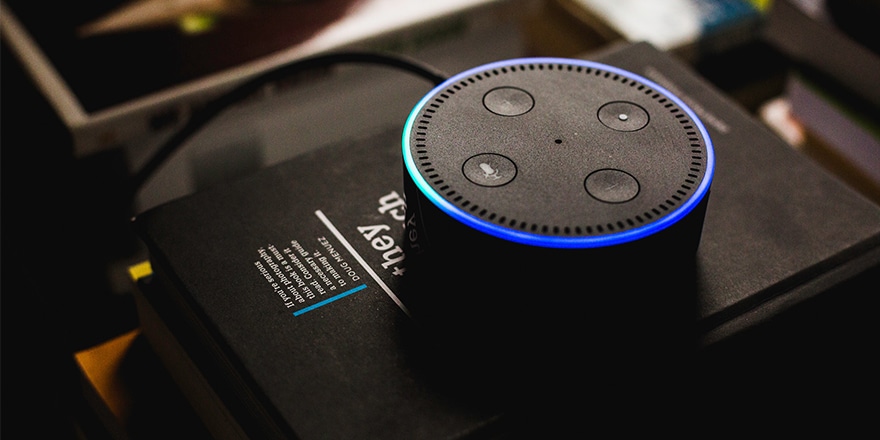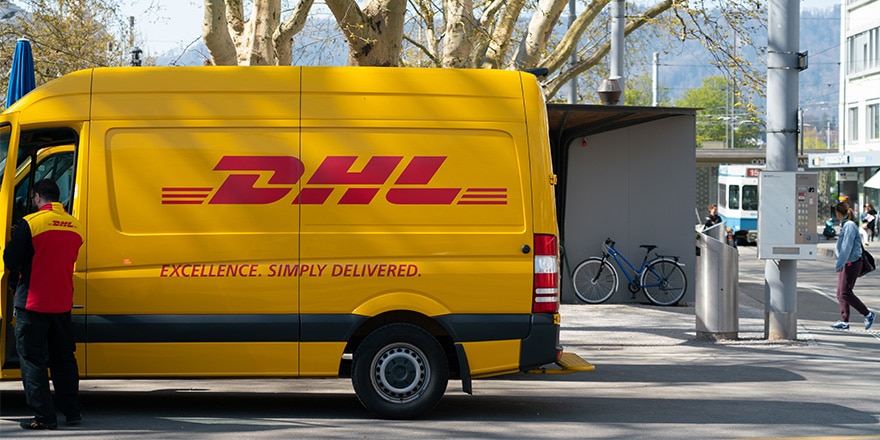In 2020, customers became bolder with their demands and expectations. You may have learned how to satisfy them with evergreen content, site optimization, and fraud protection. However, as 2021 picks up, merchants need to stay one step ahead of the competition by studying trends and going beyond customer expectations. Through convenience, conscious consumerism, and flexibility, these 3 eCommerce technologies help B2B companies boost sales and improve shopping experiences.
1. Conversational Search in the Rise of Convenience

Conversational Search is designed to mirror spoken search requests rather than keywords. Siri and Alexa changed the way shoppers navigate the Internet and retailers are finding new ways to implement “Conversational Search” in their SEO strategy. Thanks to technologies like Klevu, customers can interact with a search engine and find answers using their normal, natural language. Activating Conversational Search on your site gives customers easy, on-demand, and frictionless access to the information and products they want.
Conversational Search for B2B
Automated email blasts and informal sales outreach alone, no longer close B2B deals. 30% of web browsing sessions will be conducted without a phone screen this year. Ensuring your online store is ready to provide a simple experience through search is key. To reach your customers, you must:
1. Research: Optimizing search requires getting to know your potential customers. Research and learn the questions they’re asking, challenges they’re facing, their priorities, goals, favorite products, and the phrases they’re using to search for products you provide.
2. Optimize: Once you know your customers’ burning questions, conduct a full search audit, and optimize your site. Remember, 90% of executives research using their mobile devices before making a purchase decision. You can better serve your customers when your site feels conversational and your voice search feature is user-friendly on all devices.
3. Create Content: Voice-search optimization requires your content to reflect your buyers’ needs. It should be easy for your customers to navigate your site search through natural conversation. Include “ask keywords” in your voice search strategy that answers your buyers’ questions. Some examples include, “how can I strengthen my eCommerce strategy? ” or “what are the product benefits?”
2. Loyalty’s Place in the Rise of Conscious Consumerism

In 2020, “Conscious Consumerism” became mainstream. Now 65% of global consumers make belief-driven purchases. In addition, 66% of shoppers choose to stay loyal to brands that share their values.
Implementing platforms like Loyalty Lion will allow merchants to create unique loyalty programs. This will make it easier for customers to practice “Conscious Consumerism” while building authentic relationships between you and your customers.
Loyalty programs employed by companies like Stay Wildish are built upon members completing monthly challenges in exchange for points. Shoppers can then donate their points to non-profit organizations. This keeps customers returning to engage with the program as they earn social rewards they value.
Customers who are aligned with your mission are more willing to act as advocates and share brands with others who have similar values. By appealing to what your customers want, you’ll secure their loyalty long-term and increase their lifetime value.
Loyalty for B2B
To encourage your existing customers to return, implement a loyalty program in your B2B strategy that can help you acquire like-minded customers who will convert faster and stay loyal longer. According to B2B Marketing Academy, loyal customers are five times more likely to make a purchase and forgive mistakes. They’re also seven times easier to upsell if you include:
1. Personalization: One loyal customer equals a steady source of income. While B2B companies offer a smaller pool of customers than B2C, it’s critical to add a more personalized touch. Your customers are online, meet them there. Personalize their emails, and provide multiple ways to communicate messages to them such as text alerts. Personalization efforts can drive a six-fold increase in sales!
2. VIP Rewards: Customers love specialized perks. Don’t waste a good email without offering your customers exclusives like reward points, product sampling, and early access to promotions. Keep your customers’ goals in mind by figuring out how your reward points can directly impact their lives and be useful beyond your company’s objectives.
3. New Expectations Demand Shipping Flexibility

Customers want options, and they want them on their terms. Fast shipping, however, is no longer an option but an expectation. Retailers need to start looking at innovative and alternative shipping services and tools like ShipperHQ to meet these new expectations and create new and better experiences for customers.
BOPIS (Buy Online, Pickup In-Store) is a relatively new buying option that continues to rise in popularity. Like B2Cs, B2B companies are implementing this strategy to change how they interact with their customers. Just think about it, if your customer needs a machine part or tool that day, BOPIS allows them to buy it through your website in minutes and pick it up at a nearby store, reducing their project timeline. This also helps with items that have shipping restrictions and can take a long time to arrive where the customer needs them.
Additionally, 75% of BOPIS users make unplanned purchases while they’re in your store, according to Agilence. If Home Depot, Lowes, and Amazon can offer BOPIS options, it’s time more manufacturers and distributors take advantage of this powerful technology.
Other buying options include above-and-beyond services like same-day, white-glove, or in-home delivery. The construction, wholesale and distribution, and automotive industries can benefit greatly from it. For example, construction employees are often sent out to pick up orders. Same day delivery can save project managers time and money. These implementations will keep merchants ahead of their competition and improve customer experiences.
Shipping Flexibility and B2B
B2B customer demographics are shifting. Millennials are becoming decision-makers and they’re expecting miracles. More than next day delivery options are driving sales, they’re relying on innovation and technological advantages to make their lives as buyers easier. Shipping is one of the buyer’s final touchpoints and B2B companies can improve these experiences through:
1. Price Transparency: B2B customers expect online stores to reveal shipping costs before purchasing. Consider options that are fast and can cut down shipping costs.
2. Flexible Returns: The ability to provide flexible and easy return options will make or break your reputation. To keep your customers’ trust, provide a clear and easy return policy on your website and include return labels with shipments.
3. Efficient Distribution Strategies: B2B eCommerce sales in the U.S are expected to exceed $1.18 trillion by 2021. Success in the marketplace comes from adapting to customer demands but also being aware of rising threats. Adding more distribution centers and new technologies that can improve tracking of shipments, real-time traceability, and threat detection such as environment monitoring can help streamline logistics.
Final Thoughts
Your recipe for success in 2021 is to take today’s latest technical capabilities and implement them, while also looking ahead to future trends. Effectively engaging customers at the beginning of their shopping journey, encouraging repeat purchases through advanced search, loyalty programs, and shipping convenience should be at the forefront of B2B executive’s minds.
Olam International, a multi-national agriculture distribution powerhouse, has already implemented new shipping solution ShipperHQ along with advanced search by Amasty and Customer Approval extensions from MagePlaza with Redstage’s help. Utilizing Magento 2’s out-of-the-box B2B feature set, we helped Olam digitize operations for multiple multinational stores;
OlamSpices.com,
OlamSpecialtyCoffee.com, and
OlamEdibleNuts.com. The latter of these being the first and only online portal for edible nut distribution in the world. B2B companies that not only keep up with trends but stay ahead of them will remain one step ahead of their competitors as well.
To find out how you can integrate these technologies and more into your 2021 eCommerce strategy, book
your free consultation with Redstage today. And if you’re thinking about upgrading to Magento 2 but are strapped for time, learn more about
our 40-day B2B accelerator here.





Recent Comments